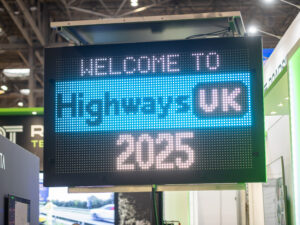The Norfolk-based road safety technology firm Westcotec is advising local authorities of the importance of understanding and using good data before committing to potentially significant road safety investments.
It says effective collection and expert analysis of data helps to ensure that resources can be targeted where they are most needed, and avoids the risk of paying large sums on interventions that may not be appropriate.
Will Spinks, a member of the Westcotec sales and marketing team, has pointed to an example of road monitoring activity from a location in the London borough of Hammersmith and Fulham. The monitoring allowed the local authority to analyse average speeds and traffic volumes at all times of day in the week before lockdown, and to compare them directly with speeds and volumes once lockdown had begun.
“The biggest difference in volumes was recorded at 10 o’clock in the morning, with 500 vehicles per hour recorded in the week of 16 March and just 320 vehicles per hour in the week of 23 March – a 36 per cent reduction,” he said.
“Where average speeds were concerned, analysts could see immediately that between 8am and midnight there was a consistent 3mph rise between 7am and midnight, peaking at 9am with a rise of almost 4mph.
“This kind of precise, location-specific data can be examined alongside casualty data to determine what interventions, if any, may be effective at the location.”
Westcotec says Spinks’s remarks are supported by advice from independent road safety consultant Iain Temperton of Traject, who sets out the need to be much smarter in the use of data when planning initiatives for road safety, air quality monitoring or modal shift to help ease congestion and pollution.
“Progress in casualty reduction has slowed over the last decade, so it is vital that road safety professionals use data and evidence to inform their practice in the years to come,” he said. “Now that we have the international call to halve road deaths by 2030 and reach Vision Zero targets by 2040, we simply cannot afford to waste time and money on schemes of work that are not effective. We must also harvest our data from every possible source.
“Roadside monitoring is a valuable tool as the right equipment can provide high volume, good quality and granular information. If it can also enforce or educate at the same time that is a definite win/win. There are a lot of road safety issues to address post lockdown, but there are opportunities to exploit as well. If you are dealing with modal shift, air quality or road safety, the right analysis will point you in the right direction.”
























